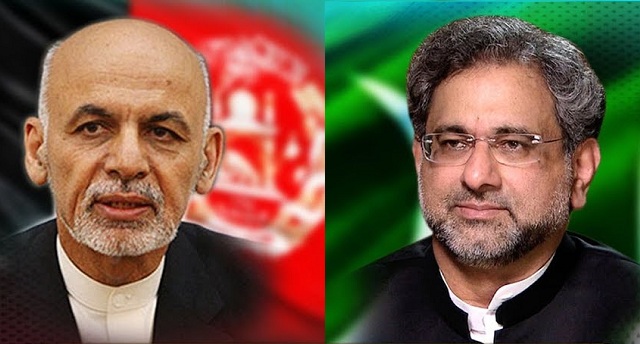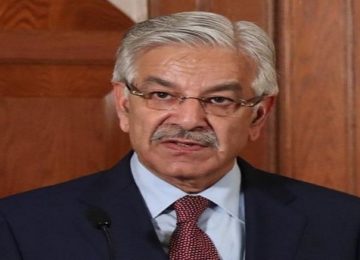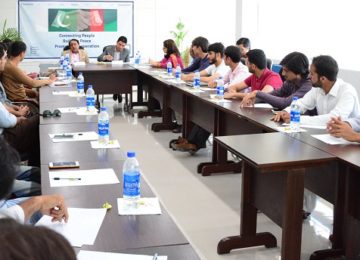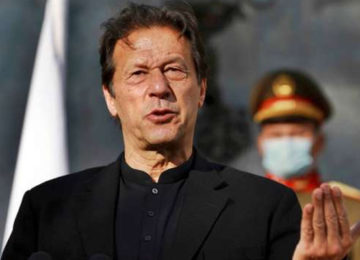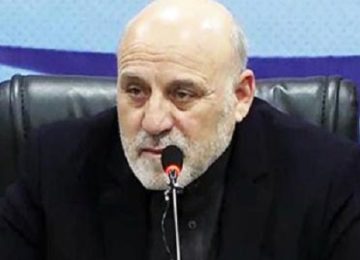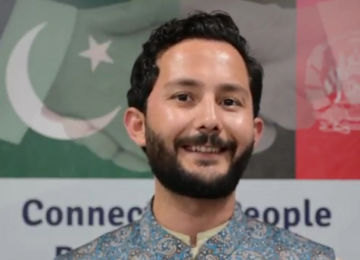A day-long trip to Afghanistan by Pakistani PM Abbasi was marred with accusations by Kabul of Pakistan launching air strikes leading to ‘huge financial damage’ in Kunar. Pakistan responded by stating that its security forces were acting against militant groups who were attacking from the across the border in Afghanistan. Even with this frenzy, the visit still somewhat helped both the countries in breaking the ice on ongoing tensions between the neighbours.
PM Abbasi’s visit took place on the invitation of Afghan President Ashraf Ghani in the backdrop of Islamabad’s support to President Ghani’s February offer of peace talks to the Taliban. This backdrop was important, especially from the Afghan side, as Pakistan has been often accused of financing terrorism and is on the verge of FATF (Financial Action Task Force) gray list for not taking adequate steps against terrorist organizations.
The US, under Trump, has also constantly pressurized Pakistan to ‘do more’. By doing more and opening fronts simultaneously with every militant outfit, Pakistan’s influence over the Taliban has also waned over the years. Why then, should the Taliban pay heed to Pakistan’s pressure?
Secondly, Ashraf Ghani may wish to open talks with the Taliban but do the Taliban want to the same? An open letter published by Zabiullah Mujahid, the Taliban spokesman, has asked for peace talks with the Trump administration through the kind offices of “peace-loving congressmen” and “American people”.
Also, as per latest reports, Mullah Abdul Salam Zaeef – former Afghan ambassador in Islamabad – too feels that the Taliban will not accept pressure from Pakistan to join such peace talks. This is mainly due to Pakistan’s possession of senior Taliban leaders.
Where USA wants peace talks, if any, to be led by Afghan government, the Taliban, however, are not willing to engage with the Afghan government without the withdrawal of foreign troops from the Afghan soil. The Taliban, in their letter, have also attempted to strengthen their argument by mentioning statistics of the US and allied forces’ causalities, along with making a mention of support from international community; presumably referring to Iran and Russia.
Ashraf Ghani, though, has responded to Taliban’s overture by offering to move ahead with peace talks with the group. He proposed a ceasefire, release of prisoners, along with recognising Taliban as a political party enabling them to contest elections and thereby participate in nation-building. He then put the foot in his mouth by demanding that the Taliban must first recognise the Afghan government and the constitution officially.
Considering that a major chunk of Afghan territory is still under Taliban control, and that for 16 years Afghan government, the US and the allied forces have miserably failed to defeat the Taliban, President Ghani’s position is not strong enough to make the Taliban accept his demands. These non-starters also raise suspicions of an invisible efforts to sabotage any peace process. Clip! Clip!
If the US and Ghani administration really wants peace in the country, the US will be open to having talks with Taliban on a one-on-one basis (only If they want peace!). Why the pretense of awarding an independent role to present Afghan government that it does not have?
However, coming back to Ghani-Abbasi meeting!
Both Abbasi and Ghani discussed multidimensional issues between both the nations including counter-terrorism strategies, bilateral trade, peace and reconciliation in Afghanistan, repatriation of Afghan refugees and regional connectivity. Both the nations agreed on a ‘political solution being the one choice that will deliver peace in the country’.
The Afghanistan-Pakistan Action Plan for Peace and Solidarity (APAPPS) promoted by Pakistan was agreed upon by Afghanistan as a good initiative. It was decided to operate five working groups constituted under APAPPS on issues of mutual interest. The thrust of the peace plan is to together deal with fugitives on both sides of the border and in dealing with elements that wish mayhem and oppose peace in the region.
One important understanding the leaders reached was to avoid any “blame game” as it only offers advantage to the miscreants and derails any efforts towards bringing normalcy. The efforts under APAPPS will be jointly supervised and coordinated. Implementation infrastructure and check points will be put in place by through Liaison Officers (LOs) to achieve desired results.
If we cut through the usual diplomatic flak, the meeting set off on a positive note and was in the right direction. However, the non-starter is lack of desire by the Taliban to engage with Ghani’s government. Another non-starter is diverse vested interests in Afghanistan often in conflict with each other.
Having said that, a thaw was made in the ice freezing over the relationship between Pakistan and Afghanistan by Abbasi’s visit. The points agreed upon are the first step in moving towards a practical dimension and seeking their solutions. One can say the intent to resolve issues was on the table but there was no grand breakthrough during this visit. Intent to address issues yes. But then, it takes more than a day trip to resolve complicated issues. One hopes that the decisions made will see a practical implementation soon.
However, there need to be clear cut goals set by leaders of both the countries. A few rounds should determine the short term and long-term goals to address specific issues. Involvement of Taliban in the peace process is mandatory to its success. This must be an ongoing process. Before involving the Taliban, both Pakistan and Afghanistan need to be on the same page for achieving regional peace.
The writer is a lawyer, academic and political analyst. She has authored a book titled ‘A Comparative Analysis of Media & Media Laws in Pakistan.’ She can be contacted at: yasmeenali62@gmail.com and tweets at @yasmeen_9
© Center for Research and Security Studies (CRSS) and Afghan Studies Center (ASC), Islamabad.



